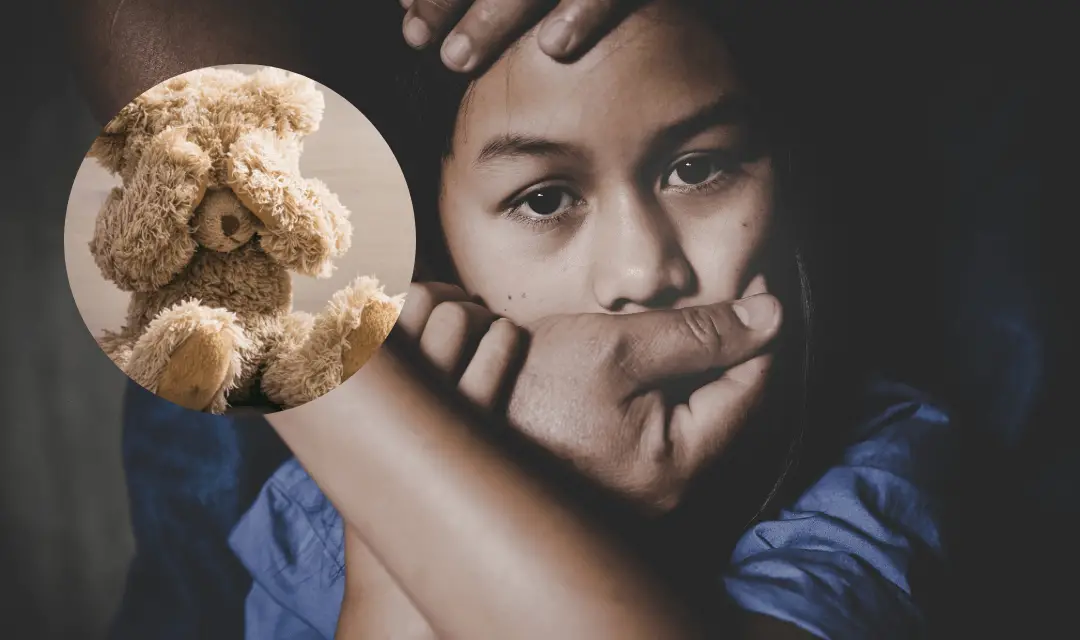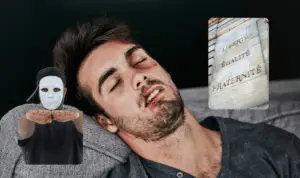Introduction
One of the most vulnerable sectors of society are children. Because of their tender age, they are often easily persuaded to do acts or be exposed to circumstances, where they are highly and likely to be endangered.
The effects of child exploitation do not stop immediately after ending the harmful act or circumstances. Most often than not, the abuses that these children experience have great psychological and physical impacts in their lives.
State’s recognition of such fact pushed legislators in enacting laws to prevent children from having to experience different kinds of abuses, ranging from physical, psychological, or even sexual abuse; hence, who are protected in RA 7610?
Although the majority of the population love and care for children, it is a sad fact that there are still those who are willing to exploit innocent lives to accommodate their own selfish interests.
In this discussion, the author will attempt to discuss Republic Act [RA] No. 76101 and other laws related to the protection of children.
What is a child under RA 7610?
R.A. 7610 clearly defined children as:
a “person below eighteen (18) years of age or those over but are unable to fully take care of themselves or protect themselves from abuse, neglect, cruelty, exploitation or discrimination because of a physical or mental disability or condition”.2
To simplify a person can be treated as a child within the confines of the law if:
- The person is below 18 years old; and
- Over 18 years old but is unable to take care or protect himself from abuse, neglect, cruelty, exploitation or discrimination because of a physical or mental disability or condition.
What is RA 7610 Section 10 (a)?
To quote the law:
“. . . (a) Any person who shall commit any other acts of child abuse, cruelty or exploitation or to be responsible for other conditions prejudicial to the child’s development including those covered by Article 59 of Presidential Decree No. 603, as amended, but not covered by the Revised Penal Code, as amended, shall suffer the penalty of prision mayor in its minimum period. . .”3
The law, in its earlier articles or sections, has provided specific provisions for particular acts of abuse such as Child Prostitution and Other Sexual Abuse,4 Child Trafficking,5 and Obscene Publications and Indecent Shows.6
While in Sec.10, the statute provides provisions for “Other Acts of Neglect, Abuse, Cruelty or Exploitation and Other Conditions Prejudicial to the Child’s Development.”
To give context to the provision cited by Sec. 10 (a), Art. 59 of Presidential Decree [P.D.] No. 6037 states that:
“Art. 59. Crimes. – Criminal liability shall attach to any parent who:8
- Conceals or abandons the child with intent to make such child lose his civil status.9
- Abandons the child under such circumstances as to deprive him of the love, care and protection he needs.10
- Sells or abandons the child to another person for valuable consideration.11
- Neglects the child by not giving him the education which the family’s station in life and financial conditions permits.12
- Fails or refuses, without justifiable grounds, to enroll the child as required by Article 72.13
- Causes, abates, or permits the truancy of the child from the school where he is “Truancy” as here used means absence without cause for more than twenty schooldays, not necessarily consecutive.14
- It shall be the duty of the teacher in charge to report to the parents the absences of the child the moment these exceed five schooldays.15
- Improperly exploits the child by using him, directly or indirectly, such as for purposes of begging and other acts which are inimical to his interest and welfare.16
- Inflicts cruel and unusual punishment upon the child or deliberately subjects him to indignations and other excessive chastisement that embarrass or humiliate him.17
- Causes or encourages the child to lead an immoral or dissolute life.18
- Permits the child to possess, handle or carry a deadly weapon, regardless of its ownership.19
- Allows or requires the child to drive without a license or with a license which the parent knows to have been illegally procured. If the motor vehicle driven by the child belongs to the parent, it shall be presumed that he permitted or ordered the child to drive.20
“Parents” as here used shall include the guardian and the head of the institution or foster home which has custody of the child.”21
Therefore, Sec. 10 (a) is a blanket provision to allow prosecution of related acts prejudicial to the development of a child.
What is the difference between RA 9262 and RA 7610?
Republic Act [RA] No. 926222 also known as the “Anti-Violence Against Women and Their Children Act of 2004” is a law which addresses both women and children abuse. On the other hand RA 7610 only concerns itself on abuses made to children.
RA 9262 can be committed against a man’s wife, ex-wife, girlfriend, ex- girlfriend, lover, ex-lover or the woman’s child. The violence inflicted to the woman can be a result of physical, sexual, or psychological, and economic abuse.23
On the other hand, RA 7610 can be committed against any child when subjecting the latter to Child Prostitution and Other Sexual Abuse, Child Trafficking, Obscene Publications and Indecent Shows, or Other Acts of Neglect, Abuse, Cruelty or Exploitation and Other Conditions Prejudicial to the Child’s Development.24
It is noteworthy that RA 7610 allows for sanctions against establishments or enterprises.25 While RA 9262 does not provide any sanctions for corporations or juridical persons.
Is RA 7610 effective?
While not stating that RA 7610 is not effective, the researcher failed to find a comprehensive research study to determine the efficiency and effectiveness of RA 7610 in curbing child abuses. However, previously filed bills in the Senate showed the failings of RA 7610, especially in the aspect of prosecution. To quote the Explanatory Note of Senate Bill No. 1245, filed by Senator Manny Villar:
“Evil men remain undeterred in their commission of evil against children.
“But the law does not mandate the creation of a body that shall exclusively be in charge of pursuing and ensuring the successful prosecution of perpetrators. Existing public and private agencies have proven to be effective in reporting and monitoring child abuses, exploitation and discrimination.26
“But they have not been as effective in the prosecution and ultimately the successful final conviction of violators of children’s rights. For more often than not, the complainants, due to financial reasons, among others, abandon and or lose interest in pursuing the case.27
“Hence, the criminals go scot-free, remaining unrestrained to commit their crimes all over again.”28(Emphasis supplied)
In this regard, we can conclude that RA 7610, although offers legal remedies to victims, does not directly equate to improved prosecution of perpetrators.
What are acts and conditions prejudicial to the child’s development in RA 7610?
To qualify, all of the previously mentioned violations are included in the list of acts and conditions prejudicial to the child’s development, if there is a list to begin with.
However, at the time of writing, there is no single document which lists all acts and conditions prejudicial to the child’s development.
Nevertheless, a careful analysis of RA 7610 will give a glimpse of these acts included in such definition. To start, Sec. 3[c] of the same law provides these kind of circumstances by stating that the child’s development is compromised when:
(c) “Circumstances which gravely threaten or endanger the survival and normal development of children” include, but are not limited to, the following;29
“(1) Being in a community where there is armed conflict or being affected by armed conflict-related activities;30
“(2) Working under conditions hazardous to life, safety and normal which unduly interfere with their normal development;31
“(3) Living in or fending for themselves in the streets of urban or rural areas without the care of parents or a guardian or basic services needed for a good quality of life;32
“(4) Being a member of a indigenous cultural community and/or living under conditions of extreme poverty or in an area which is underdeveloped and/or lacks or has inadequate access to basic services needed for a good quality of life;33
“(5) Being a victim of a man-made or natural disaster or calamity; or34
“(6) Circumstances analogous to those above stated which endanger the life, safety or normal development of children.35
In addition thereto, Sec. 10 [RA 7610] also provides for such acts and conditions, to wit:
“(b) Any person who shall keep or have in his company a minor, twelve (12) years or under or who in ten (10) years or more his junior in any public or private place, hotel, motel, beer joint, discotheque, cabaret, pension house, sauna or massage parlor, beach and/or other tourist resort or similar places . . . Provided, That this provision shall not apply to any person who is related within the fourth degree of consanguinity or affinity or any bond recognized by law, local custom and tradition or acts in the performance of a social, moral or legal duty.36
Likewise:
A person who shall use, coerce, force or intimidate a street child or any other child to;37
Beg or use begging as a means of living;38
Act as conduit or middlemen in drug trafficking or pushing; or39
Conduct any illegal activities.”40
Hence, it can be inferred that there are various acts and conditions which affect the development of a child.
It is the humble opinion of the author that collating these acts and conditions into a list or a single document will be impossible to do or for a better definition, impractical.
The Courts shall resort to determining each acts or conditions on a case-to-case basis. Moreover, this is probably the reason for the blanket provision stipulated under Sec. 10 (a) of RA 7610.
What are the prohibited acts under RA 7610?
The following are the prohibited acts:
- Child prostitution and other sexual abuse (Sec. 5, RA 7610);
- Attempt to commit child prostitution (Sec. 6, RA 7610);
- Child trafficking (Sec. 7, RA 7610);
- Attempt to commit child trafficking (Sec. 8, RA 7610);
- Obscene publications and indecent shows (Sec. 9, RA 7610);
- Other acts of neglect, abuse, cruelty or exploitation and other conditions prejudicial to the child’s development (Sec. 10, RA 7610);
- Establishments or enterprises promoting, facilitating, or conducting activities constituting child prostitution and other sexual abuse, child trafficking, obscene publications and indecent shows, and other acts of abuse (Sec. 11, RA 7610);
- Employment of children (Sec. 12, RA 7610);
- Discrimination of children of indigenous cultural communities (Sec. 20, RA 7610); and
- Confidentiality (Sec. 29, RA 7610).
As a way of discipling him or her, is beating a child illegal? Can a parent hit his child for discipline?
Beating a child is illegal as it results in physical violence against a child which is punishable under RA 9262, if the perpetrator had sexual or dating relationship with the mother of the child, or under RA 7610 as it prejudices the development of the child.
Senate Bill (SB) No. 1477 and House Bill (HB) No. 8239 or the “Act promoting positive and nonviolent discipline, protecting children from physical, humiliating or degrading acts as a form of punishment” was vetoed by President Rodrigo R. Duterte.41
Therefore, to date, there is now law which prohibits parents from imposing physical punishments on their children as long as it does not impede the child’s development or be tantamount to abuse.
Why is RA 7610 passed in Congress?
The rationale of the law can be gleaned from Sec. 2 of RA 7610. To avoid any deviation and unnecessary opinion, the author will opt to quote the provision, which states:
“. . . Section 2. Declaration of State Policy and Principles. – It is hereby declared to be the policy of the State to provide special protection to children from all firms of abuse, neglect, cruelty exploitation and discrimination and other conditions, prejudicial their development; provide sanctions for their commission and carry out a program for prevention and deterrence of and crisis intervention in situations of child abuse, exploitation and discrimination.42
“The State shall intervene on behalf of the child when the parent, guardian, teacher or person having care or custody of the child fails or is unable to protect the child against abuse, exploitation and discrimination or when such acts against the child are committed by the said parent, guardian, teacher or person having care and custody of the same.43
“It shall be the policy of the State to protect and rehabilitate children gravely threatened or endangered by circumstances which affect or will affect their survival and normal development and over which they have no control.44
“The best interests of children shall be the paramount consideration in all actions concerning them, whether undertaken by public or private social welfare institutions, courts of law, administrative authorities, and legislative bodies, consistent with the principle of First Call for Children as enunciated in the United Nations Convention of the Rights of the Child. Every effort shall be exerted to promote the welfare of children and enhance their opportunities for a useful and happy life . . .”45 (Emphasis supplied)
Can one go to jail for verbal abuse of a child?
RA 9262, which includes the penalty of imprisonment, allows sanction of imprisonment in the event that the child suffers from psychological violence as a cause of repeated verbal abuse and marital infidelity.46
What does child assault mean?
The word assault as used in RA 7160 and RA 9262 was used not in the context of any prohibited sexual act. Hence, it will be safe to infer that the law refers to physical assault. In fact, RA 9262 grouped the word “assault” together with battery and coercion.
Therefore child assault is an act which is tantamount to infliction of physical harm to the child.
Is bullying a child an assault or an abuse?
Child abuse is defined as any maltreatment, whether habitual or not, of the child.47 However, in Philippine legal context, there is no exact definition of child assault. In fact, the word “assault” was not even included in RA 10627 or the “Anti-Bullying Act of 2013”.48
Hence, we can conclude that a child bullied by his peers is a form of child abuse if it results to psychological, physical, or sexual abuse.
Can one be held liable under RA 7610 if he bullies a child using social media?
One of the punishable acts under RA 10175 is libel.49 RA 10627 and RA 7610 are not mutually exclusive crimes due to them having different elements with each other. RA 10175 having the sole punishable offence of cyber libel and RA 7610 the abuse of a child. Hence, both laws can be applied simultaneously.
Therefore, to answer the question, a person can be held liable against RA 7610 if the cyberbullying prejudices the development of the child.
Are violations of RA 7160 bailable offenses?
Rule 114 provides that “a person charged with a capital offense, or an offense punishable by reclusion perpetua or life imprisonment” shall not be entitled to a bail when evidence of guilt is strong.50 The following offenses falls within the definition of the rules, to wit:
- Child Prostitution;
- Child Trafficking; and
- Any person who shall use, coerce, force or intimidate a street child or any other child to conduct any illegal activities when the victim is under twelve (12) years of
All other acts violative of RA 7160 is bailable under the definition of the law.
Are teachers allowed to inflict corporal punishment upon a child student in the school as a way of disciplining the latter?
As early as 1978, the Supreme Court in Bagajo vs. Marave51 cleared that no teacher may impose corporal punishment to his or her student. To quote the Supreme Court decision:
“In the school premises and during school activities and affairs, the teacher exercises substitute parental authority over the students. (Article 349, Civil Code.) More specifically, according to Article 352, “The relations between teacher and pupil, professor and student, are fixed by government regulations and those of each school or institution. In no case shall corporal punishment be countenanced. The teacher or professor shall cultivate the best potentialities of the heart and mind of the pupil or student.” And pursuant to this provision, Section 150 of the Bureau of Public Schools Service Manual enjoins:52
“The use of corporal punishment by teachers (slapping, jerking, or pushing pupils about), imposing manual work or degrading tasks as penalty, meting out cruel and unusual punishments of any nature, reducing scholarship rating for bad conduct, holding up a pupil to unnecessary ridicule, the use of epithets and expressions tending to destroy the pupil’s self-respect, and the permanent confiscation of personal effects of pupils are forbidden.53
“In other words, under the foregoing Civil Code and administrative injunctions, no teacher may impose corporal punishment upon any student in any case.”54
Final Thoughts
It is the policy of the State to protect children against any kind of abuse and to ensure that they develop properly. In the wise words of Dr. Jose Rizal, “The youth is the hope of our future”. It is within this context that the above-mentioned laws are passed for the protection of children. Although these laws have their own shortcomings, as discussed above, they still offer high level of protection for children to have a nurtured environment.
- RA 7610[↩]
- Sec. 3 (a), R.A. No. 7610 also known as “Special Protection of Children Against Abuse, Exploitation and Discrimination Act”[↩]
- Id, Sec. 10 [a][↩]
- Id, Article 3[↩]
- Id, Article 4[↩]
- Id, Article 5[↩]
- P.D. 603[↩]
- Ibid.[↩]
- Id.[↩]
- Id.[↩]
- Id.[↩]
- Id.[↩]
- Id.[↩]
- Id.[↩]
- Id.[↩]
- Id.[↩]
- Id.[↩]
- Id.[↩]
- Id.[↩]
- Id.[↩]
- Id.[↩]
- RA 9262[↩]
- “Punishing Violence Against Women in the Philippines”, Nicolas & De Vega Law Offices[↩]
- Ibid, at 1 See also: Articles 3, 4, 5, and 6[↩]
- Id, Article 7, RA 7610[↩]
- Explanatory Note, SB No. 1245, Sen. M. Villar[↩]
- Ibid.[↩]
- Ibid.[↩]
- Section 3[c], RA 7610[↩]
- Id.[↩]
- Id.[↩]
- Id.[↩]
- Id.[↩]
- Id.[↩]
- Id.[↩]
- Section 10, RA 7610[↩]
- Section 10[e], RA 7610[↩]
- Id., 10[e1][↩]
- Id., 10[e2][↩]
- Id., 10[e3][↩]
- President vetoes anti-corporal punishment bill, A. L. Balinbin[↩]
- Section 2, of RA 7610[↩]
- Ibid.[↩]
- Ibid.[↩]
- Ibid.[↩]
- Sec. 3 (c), RA 9262[↩]
- Id, at 1, R 7610[↩]
- RA 10627 or the “Anti-Bullying Act of 2013[↩]
- Par. 4, Sec. 4, RA 10175 or the “Cybercrime Prevention Act of 2012[↩]
- Sec. 7, Rule 114, Rules of Court[↩]
- G.R. No. L-33345, Bagajo vs. Marave, SC En Banc, November 20, 1978[↩]
- Ibid.[↩]
- Ibid.[↩]
- Ibid.[↩]




